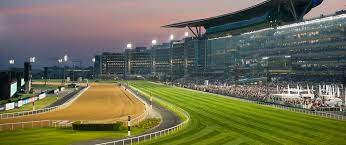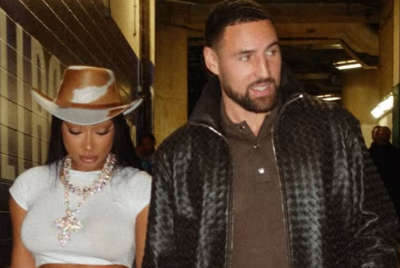Forget The Lazy Stereotypes, Dubai Will Help To Define The 21st Century
I have presented horse racing at venues across the globe in my career, from the hustle and bustle of Sha Tin to the glitz and glamour of Royal Ascot, but there has always been something a little different about Meydan.
Home to the UAE's best-loved turf and dirt tracks, Meydan combines racing legacy and genius on the turf with a thousand backstories, from stable staff who stepped out of the shadows to make it big, to the success of Salem bin Ghadayer, a partially blind trainer.
Last Saturday's Dubai World Cup brought this all together, featuring a unique Purebred Arabian contest alongside eight Thoroughbred races and showcasing years of specialised training and handling under the roar of the Meydan crowd.

Beyond sport itself, Dubai is preceded by its reputation for spectacle and luxury – typified by expensive hotels, restaurants, and shopping malls – often giving visitors the impression that they are peering into the future.
From my time in Dubai, however, I've learnt that the city actually has its sights firmly fixed on the present – facing up like many in the West to the defining challenges of our era, while working to strengthen the ties that bind society.
Taking the challenges first, it's well recognised that the past two years have served as a warning against complacency around recent societal progress.
Despite vast improvements, many countries, societies, and indeed sectors still have real work to do. I specifically looked into the progress being made around diversity and inclusion in UK racing in a documentary for Sky Sports two years ago and remain hopeful about renewed efforts to move the dial.
On the subject of inclusivity, it's also been encouraging to see the steps Dubai has taken in increasing female participation in racing and indeed sport, while bin Ghadayer's remarkable career likewise demonstrates that there now exists a clearer route from the bottom to the top of the thoroughbred industry.
The clatter of hooves across turf in the UK and the sands of the Emirate dates back hundreds of years, putting their legacy and historic pursuit of excellence beyond doubt. Yet, it's even more pleasing that the two racing communities are intent on doing something more.
In common with many other cities, sport is where Dubai's heritage meets its place in the modern world. You can certainly see this at Meydan, but it's also a hallmark of golf in Dubai.
Emirates Golf Club
The Emirates Golf Club (EGC) is a veritable institution, playing host to the thirty-four-year-old Dubai Desert Classic – the DP World Tour's first tournament to be played outside of Europe
and now fondly known as the 'Major of the Middle East'.
The club's Majlis course represents something new, though. Its testing 18-holes are built around the city's dunes and wildlife, rather than replacing them and losing out on the biodiversity.
Like other Gulf states, the UAE is a leading energy exporter – something that won't change immediately, especially with sky-high bills here in the West. Diversifying away from hydrocarbons, however, seems to top the UAE's agenda and it's encouraging to see Dubai sport's progress when it comes to sustainability.
As a case in point, the Hero Dubai Desert Classic looks set to be'Geo Certified' for environmental stewardship in 2023, banning single use plastics and cutting down on emissions and needlesswaste.
Whereas golf in the present day divides opinion, all eyes will be on the Gulf for next year's COP28 in Dubai. The summit is widely expected to be a showdown between the world's superpowers, with the climate crisis now top of the political agenda.
As both a popular international hub and a recognised bridge between East and West, Dubai has a major role to play in the upcoming negotiations. I hope the emirate, alongside other
neutral states, seizes the opportunity to bring the big nations tothe table and help facilitate a deal around emissions and mitigating natural disasters.
Despite being faithlessly held up as a consumerist haven, Dubai is seemingly engaged by two important tasks: helping to face down global turbulence on the one hand, while building a more equal society on the other.
The US and UK have been doing the same for decades and while progress is hard fought, it's always worth it and this is a lesson that the emirate seems to have learnt.
Moreover, with such a dynamic agenda on nearly every front, Dubai has not only embarked on navigating the realities of life in the 21st century, but it looks set to help define the era too.



















